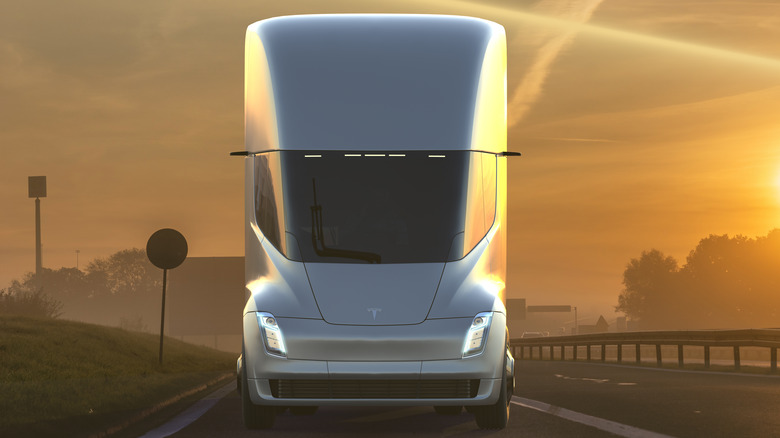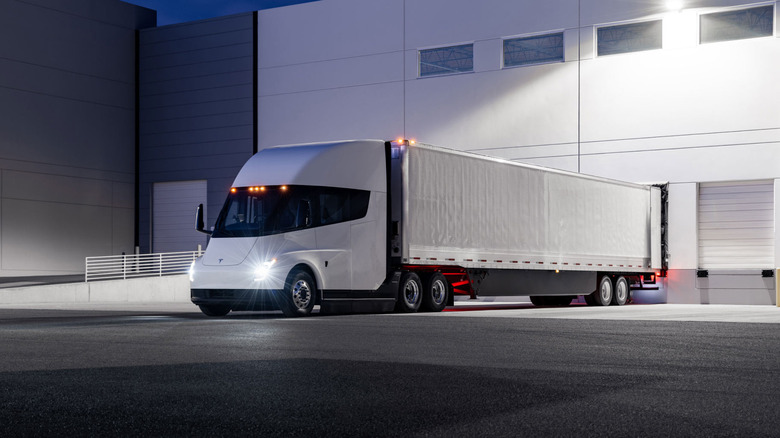Elon Musk Says Pepsi Is Getting Tesla Semi First — And Soon
Tesla's first electric commercial truck, the Semi, has finally entered production, and it will start shipping to buyers this December. The news was announced on Twitter by Tesla CEO Elon Musk. The Semi was unveiled back in 2017, and like its massively hyped sibling, the Cybertruck, the production plans for Tesla's electric truck have been repeatedly delayed. First, it was part shortage and lack of production resources as Tesla was tirelessly working on its electric car delivery commitments.
Then came the global semiconductor shortage, which further cast clouds of uncertainty on Semi plans. It was only in August this year that Tesla finally confirmed a production schedule for the Semi that was slated to begin by the end of 2022. Tesla has claimed a range of 500 miles for the Semi and has also made bold promises about the acceleration figures, which stand at zero to 60 mph in 20 seconds while fully loaded. It has an interesting central seating position for the driver with two large screens flanking the steering wheel on either side.
For commercial clients only, sorry
Tesla has made it clear from the get-go that the Semi is aimed at deep-pocketed commercial clients. Therefore, it comes as no surprise that the first customer to get its hands on the Semi is Pepsi, which is expecting deliveries starting December of this year. But the beverage giant made its interest known back in 2017, when it placed pre-orders for 100 Semi trucks. Among other customers that have shown enthusiasm in electrification of their fleet are Budweiser (which also placed pre-orders for 40 units in the same year), Walmart and UPS.
While an electric truck sounds like a more environmentally-conscious idea that will be a symbol of commercial mobility in the future, the biggest promise is related to energy consumption. Tesla claims that the Semi consumes less than 2kWh per mile and will help drastically reduce the environmental impact from gas-guzzling long-range commercial trucks.
Moreover, Tesla is also pushing it as a more economical alternative for commercial customers, claiming a gross savings of $200,000 on fuel-related costs within just three years of owning the sleek truck. Another advantage is the lower maintenance hassles, thanks to OTA updates for feature addition and bug resolution, remote diagnosis, and fewer moving parts to worry about. As for the charging figures, the company is touting up to 70% top up in just half an hour.

